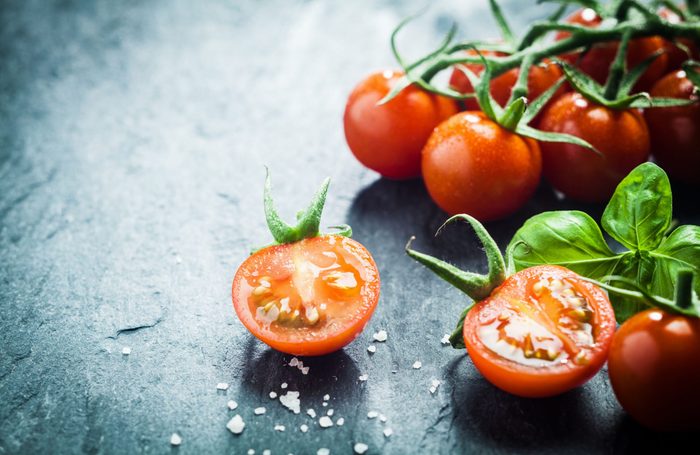
Tomatoes
There’s a reason why tomatoes can stay in the sun for a long time without burning: lycopene. It’s the main carotenoid found in tomatoes, a plant-based super antioxidant that’s responsible for its rich red colour. “Lycopene absorbs free radicals and protects against DNA damage,” says Brooke Joanna Benlifer, a registered dietician and expert in anti-inflammatory diets. It’s best to eat tomatoes in the form of a sauce or a soup. Studies found that the body absorbs lycopene better from tomatoes that were cooked or crushed than raw.
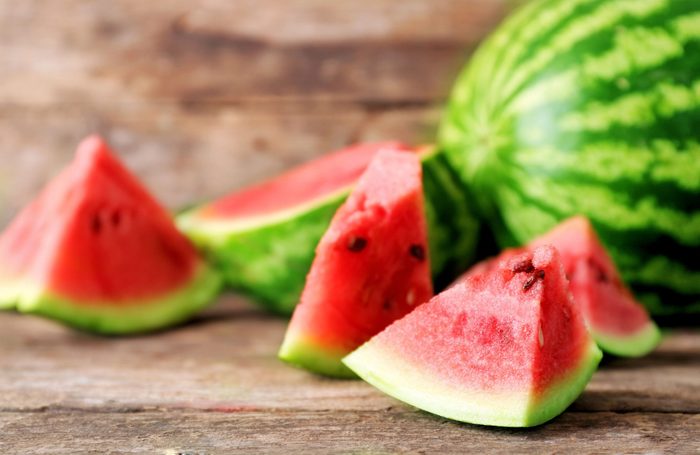
Watermelon
Load up on watermelons because like tomatoes, they’re also high in lycopene. They protect your body from the free radicals that come from sun exposure and pollution. The extra vitamin C also helps to quickly repair any damaged skin cells and redness. Pick up a pink watermelon, though. One study found that the yellow-fleshed watermelons had less lycopene and antioxidant properties than the pink-fleshed ones.
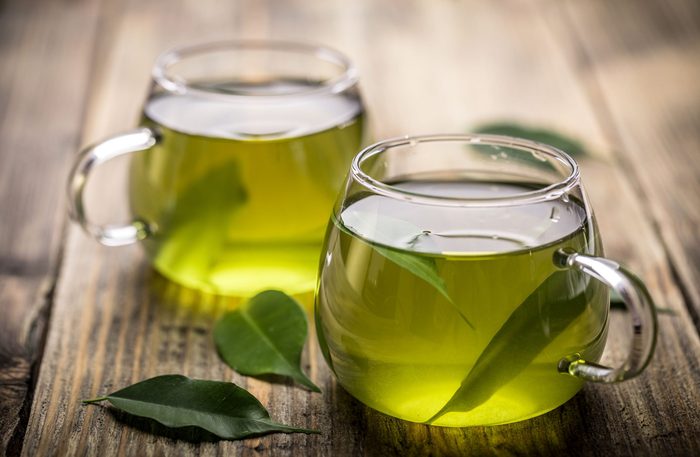
Green Tea
A pot of brewed green tea has incredible anti-inflammatory, anti-aging and antioxidant effects on the skin. It’s rich in catechins, a polyphenol that’s been recognized as a protective agent against UV radiation. Don’t throw out that tea bag, though. Researchers found that when green tea is applied directly on the skin, it reduced the number of sunburn cells after UV exposure.
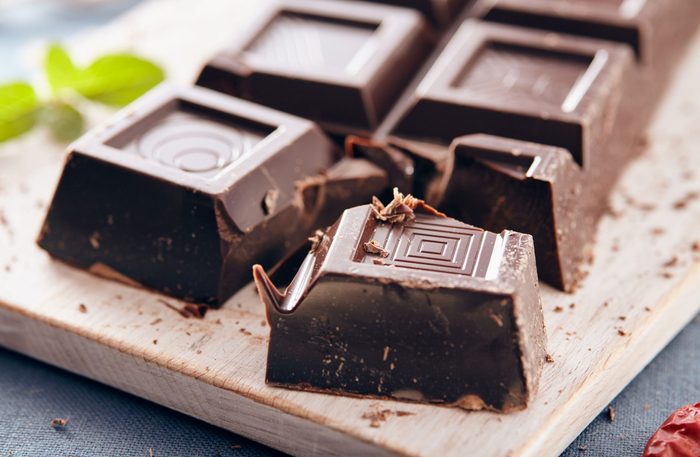
Chocolate
Cocoa beans are a rich source of flavanols, a powerful antioxidant that fights inflammation and prevents oxidative damage to the skin. However, not all chocolates have this healthful effect. “Milk or semi-sweet chocolate-the kind found in Kisses-has a high sugar content, so it can trigger inflammation,” according to Jessica Wu in Feed Your Face. “Choose the highest cocoa percentage you can. The higher the percentage, the greater the antioxidant quality.”
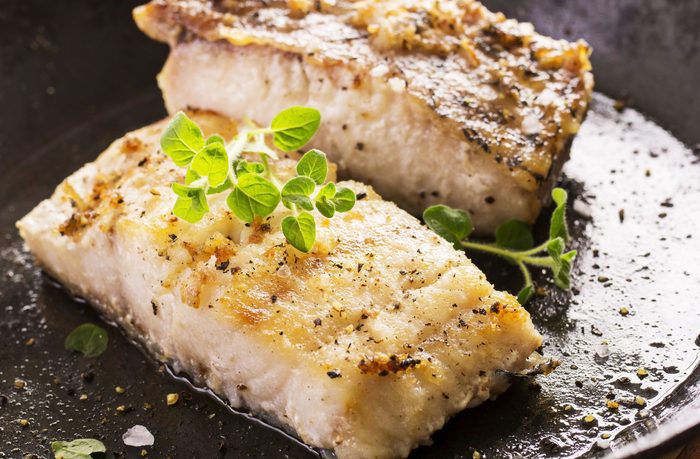
Fish
The omega-3 fatty acids found in many kinds of fish are effective at warding off inflammation. During one study, volunteers took 10g of fish oil for up to six months. After testing the skin, researchers found volunteers experienced less sensitivity to UVB light, the rays responsible for burning. Fish oil supplements are a great way to get your daily intake of omega-3s, but dietician Benlifer says the best way to get all of the benefits and nutrients of fish is to eat the food itself.
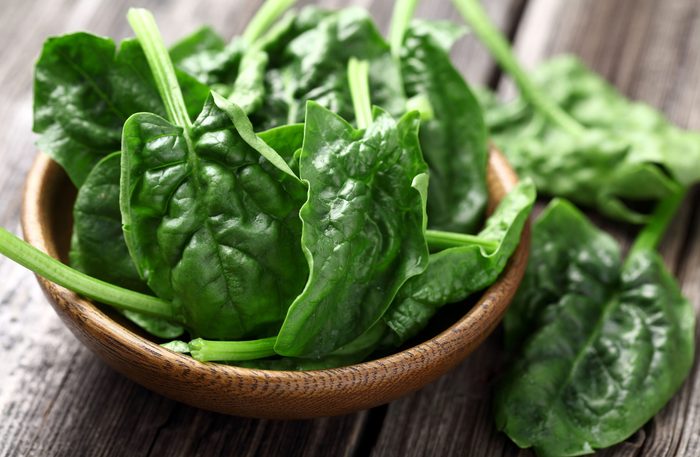
Greens
Greens are packed with skin-protecting antioxidants for one simple reason: its colour! Spinach, kale, and any kind of dark greens contain standout carotenoids that give them their vibrant colour and protect them from damaging light and oxygen. When consumed, skin gets a dose of vitamin E, protecting it from the sun and preventing pigmentation.

Red Wine
A German study found that the high polyphenol antioxidants in red wine can protect skin even after it’s been exposed to the sun. Fifteen men were given a dose of UVB light and were then given different kinds of red wine to drink over the next 40 minutes. The men that drank the wine with the highest amount of polyphenols saw an increase of their skin’s SPF by up to 1.19. Since it’s the skin of grapes that gives red wine its antioxidant power, white wines are not as effective skin protectors.
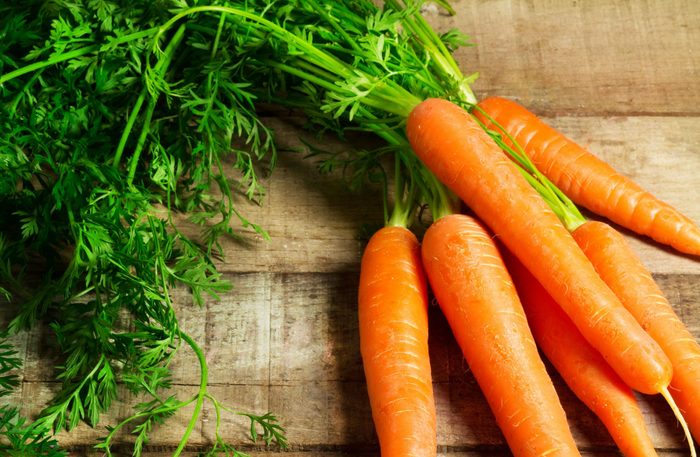
Carrots
Beta-carotenes are found in all bright yellow and orange foods, including sweet potatoes, pumpkins, apricots, and grapefruit. They’re especially off the charts in carrots and can offer up some added skin protection. According to Feed Your Genes, scientists discovered that beta-carotenes inhibit the gene that activates an inflammatory response after exposure to UV rays. However, unlike lycopenes, the protection from beta-carotene-rich foods is very modest so don’t skip the sunscreen.

Eggs
“Eggs, especially organic eggs, contain high concentrations of antioxidants,” according to Jessica Wu. It’s the yolk in particular that’s packed with all the benefits. The yellow center is rich in luteins, a health-promoting antioxidant that’s also responsible for the maintenance of eye health. Lutein also has the added boost of increasing your skin’s hydration and elasticity.
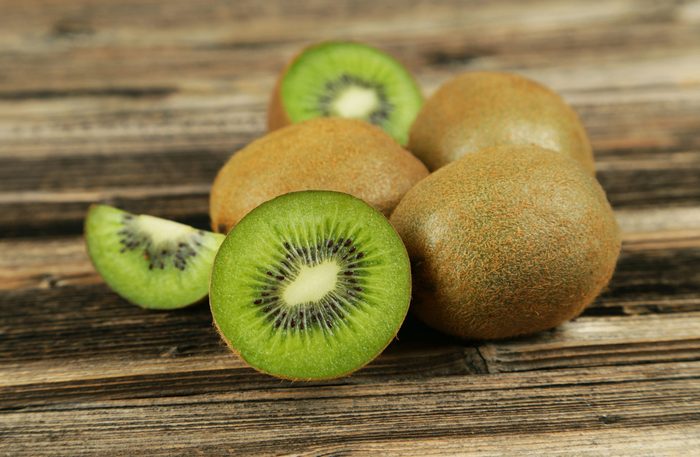
Kiwi
A long line of research has shown vitamin C to be outstanding at protecting and treating the skin cells against UV damage. When consumed, vitamin C helps stimulate the fibroblasts to quickly respond to and repair any damaged skin cells. It also helps build collagen and strengthen capillaries. That’s why kiwis are the perfect pick since they’re packed with much more of this super skin-saving vitamin than even oranges.
Related features:
5 Foods To Control Migraines
6 Foods To Help Prevent Alzheimer’s
7 Foods To Prevent Ulcers